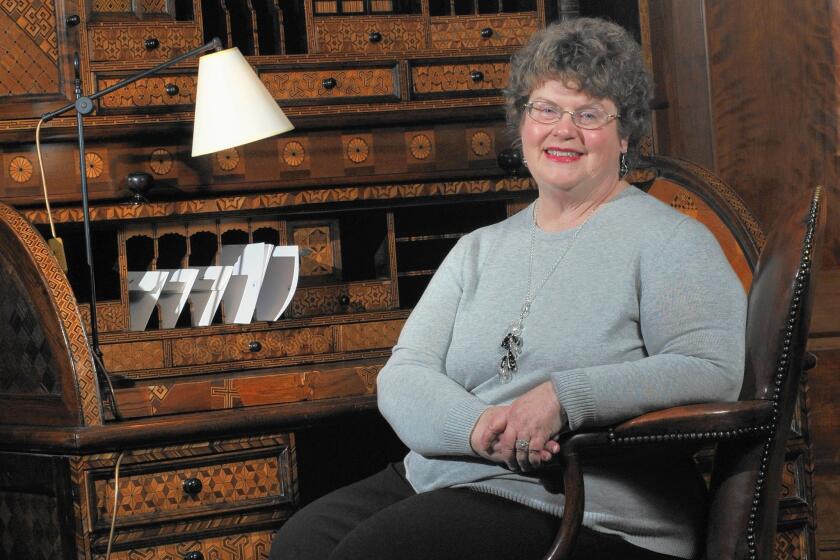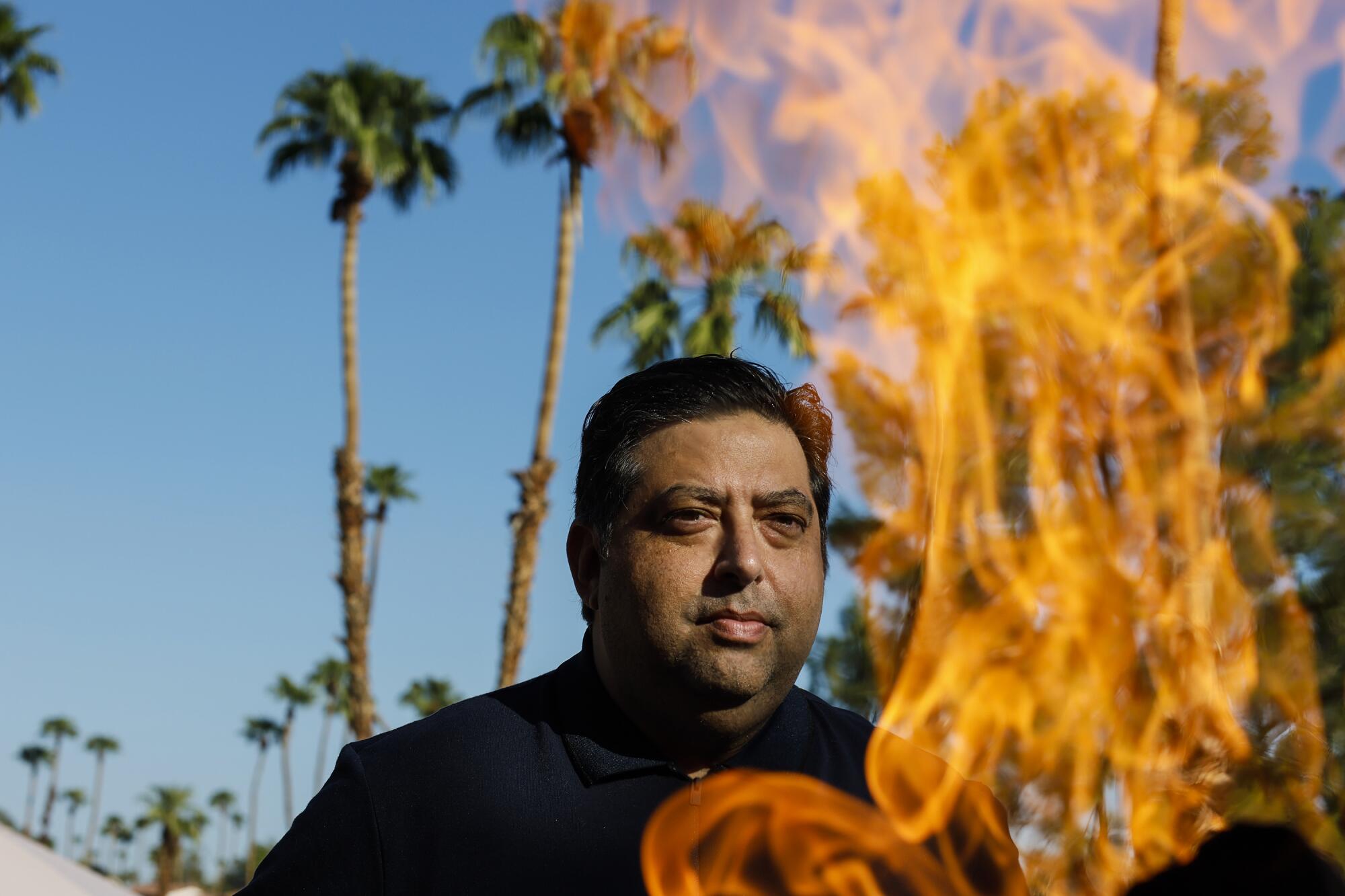
- Share via
On the Shelf
Gangster's Don't Die
By Tod Goldberg
Counterpoint: 384 pages, $28
If you buy books linked on our site, The Times may earn a commission from Bookshop.org, whose fees support independent bookstores.
Tod Goldberg has many enemies.
A former mayor of Indio, members of the Palm Springs Facebook group and those who make comments rather than ask questions during literary events have all felt the sting of the novelist’s caustic wit.
Goldberg is charming and sharp, with a quip for every occasion, but he can also be ruthlessly profane — both in person and on the page.
“I get letters,” Goldberg said over dinner in San Diego’s Little Italy. He was winding down from a panel at Bouchercon, a traveling annual convention for writers and readers of crime fiction. “It’s never, ‘You killed 15 people in your book,” he continued. “Instead, they say, ‘I was really surprised by how much profanity was in your book.’ That’s such a strange thing about crime fiction. Can’t kill dogs or swear too much, but you can kill every single human you come in contact with.”
It’s all part of Tod Goldberg’s new novel, ‘Gangsterland,’ which was born out of a midlife crisis (sort of) and involves murder, a Mafia hit man, a rabbi and a cemetery in a bucolic Vegas suburb.
Goldberg’s new novel, “Gangsters Don’t Die,” concludes a series of books he began in 2014 with “Gangsterland,” the story of a Chicago hitman named Sal Cupertine who, with the help of plastic surgery and a mobster named Bennie Savone, begins a new life in Las Vegas as Rabbi David Cohen. In 2017’s “Gangster Nation,” both the FBI and Sal’s enemies close in on his ongoing criminal enterprise at the temple where he oversees a lucrative body laundering business. “The Low Desert,” a collection of stories set in the Gangsterland universe, appeared in 2021; the new novel wraps up the saga with an explosive yet heartfelt finish.
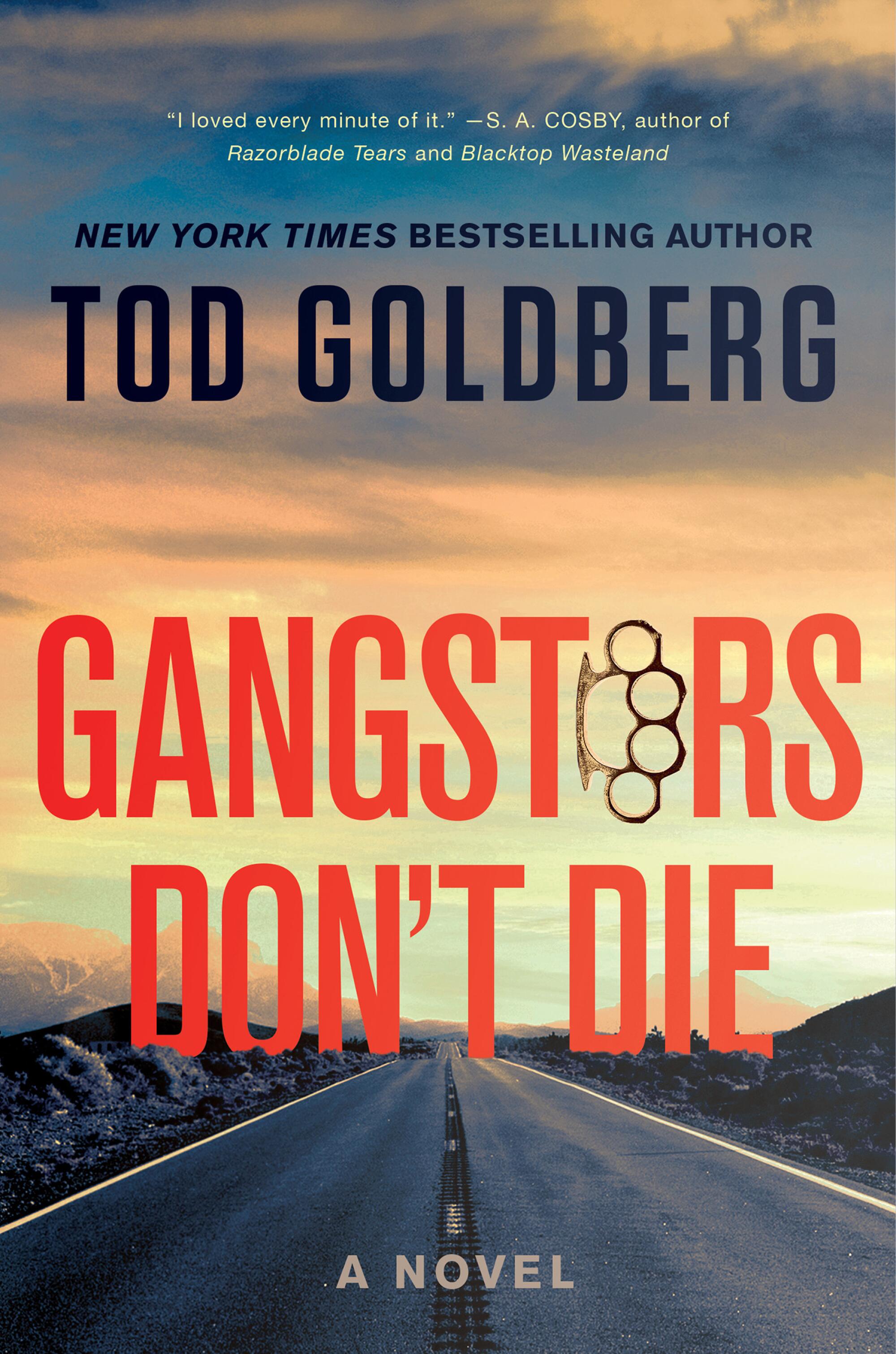
The origins of the series can be traced back to Sal’s first appearance in the 2008 short story “Mitzvah.” “I knew from the beginning it was going to be a three book series,” Goldberg said. It took several years of research before he was ready to write “Gangsterland,” and once he immersed himself in the world of a contract killer who will do anything to keep his secret safe, he resolved not to pull any punches.
“There was a choice I made, starting in the first book,” Goldberg said, “where if someone gets shot in the face, it’s not like in the movies, where a little blood trickles out of a hole. If you shoot someone in the face, their face gets ripped off. I wanted to show that. I wanted to show that it’s not like a cartoon, that the violence is real.”
Although each book stands on its own, taken together, the Gangsterland novels read like a single sweeping story with a large cast and numerous storylines, which Goldberg compares to the slow-developing character arc over the course of several seasons of shows like “Game of Thrones” and “The Wire.” This gave Goldberg a great deal of latitude to tell the story in an emotionally satisfying way.
The 13 most essential L.A. crime books — from Chandler, Hughes, Mosley and Ellroy to Steph Cha and Ivy Pochoda, with some ‘Helter Skelter’ in between.
For help pulling the threads together, Goldberg credits his editor, Dan Smetanka, and his older brother Lee, who is also a critically acclaimed novelist and bestseller. “It was super helpful to have this guy who’s written 10 different series be a consultant for me at a moment’s notice,” Goldberg said.
Lee, who was also in attendance at Bouchercon to celebrate the release of his latest novel, “Malibu Burning,” is proud of his sibling and impressed with his achievement. “It takes real skill to take a premise that absurd and make it believable,” Lee said.
Goldberg’s success in this anti-heroic mode is rare in the world of crime fiction. Where many writers emphasize the violence in their stories, Goldberg pays equal attention to its psychic aftermath. He confessed that he hates crime novels in which the main character does “a bunch of crazy, horrible, awful things for 350 pages,” only to be rewarded with a schmaltzy scene that sweeps the trauma under the rug. “No, you’re going to therapy,” Goldberg said. “Everyone’s going to therapy after this.”
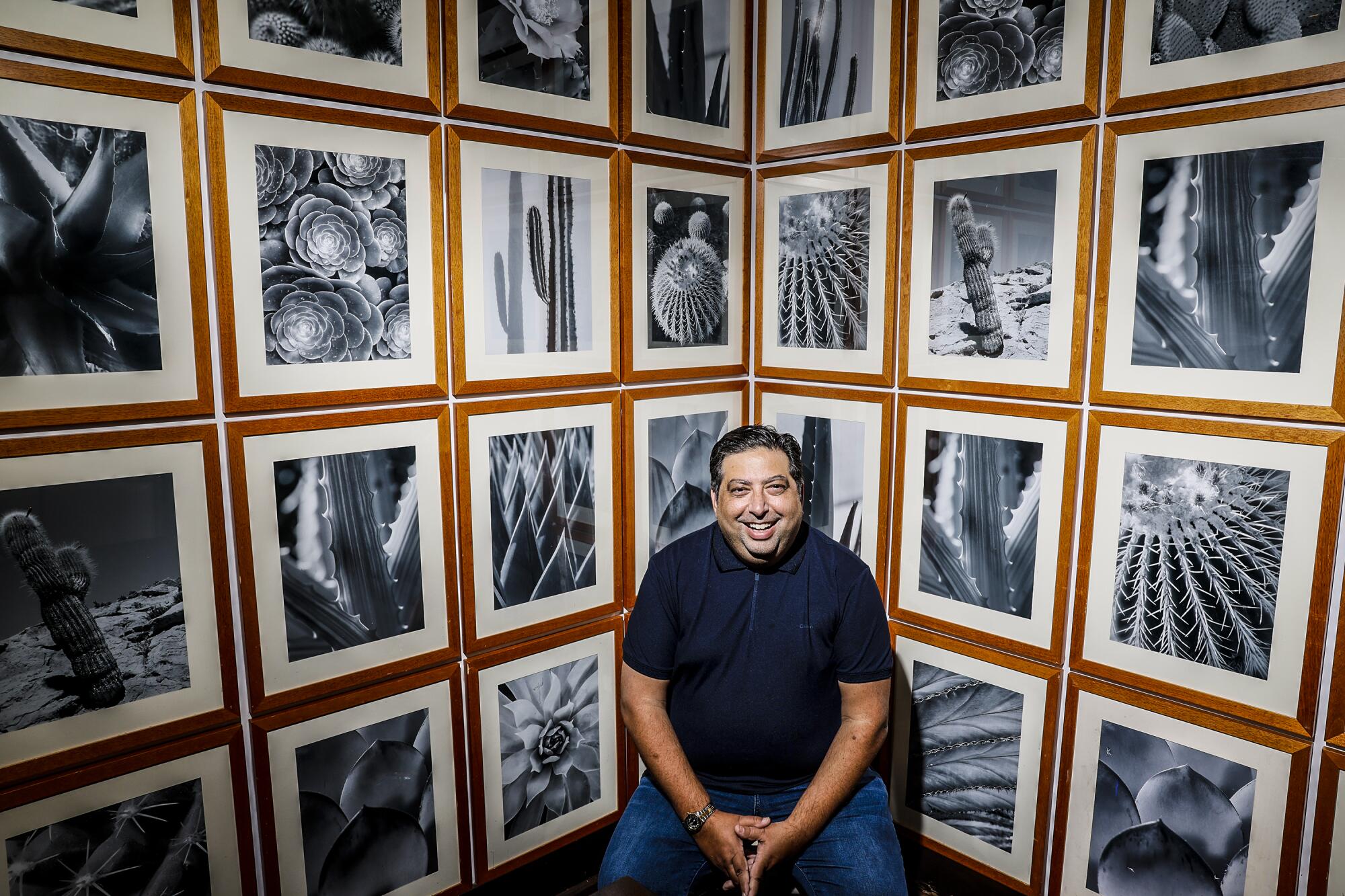
Goldberg has carved out a niche for himself in desert noir, and his peers have taken notice. “The desert is a deadly place even before the bad men show up,” said Jordan Harper, author of “Everybody Knows.” “What Goldberg does so well is give us the oasis of humor and insight and compelling characters to go along with that deadliness.”
The research Goldberg conducted for the series didn’t involve mob lore or the exigencies of crushing someone’s windpipe. Rather, he began an intensive study of the holy books.
“I’m not a great Jew,” he said. “I’m not religious, but I’m spiritual. When I started writing this, I didn’t know enough about my own family history, about the struggle my family had gone through.”
The Talmud says you must know where you come from — at least according to Sal. There’s a running joke through the Gangsterland series that whenever Sal is exercising his duties as Rabbi David Cohen and he can’t think of a suitable response from the Talmud, he quotes Bruce Springsteen lyrics instead.
Fiction from Zadie Smith, Yiyun Li and Jesmyn Ward, memoirs from Sly Stone and Werner Herzog and a bio of Elon Musk are among the fall’s most anticipated books.
Nevertheless, the fake rabbi had to emerge from a real place. So Goldberg set out to learn his ancestral history and discovered that his mother’s parents left Bar, in present-day Ukraine, in 1919, just before the Russians killed all the Jews there. All the members of the family who stayed behind were killed. Goldberg sees this discovery as nothing less than “a battle for my own sense of faith.” It was imperative, as a second-generation American, that he understand the sacrifices made just to get him to this time and place so that he could enjoy the privilege of writing these books.
It’s not that surprising, then, that Sal Cupertine sounds a lot like Tod Goldberg, especially when he’s posing as Rabbi David Cohen.
“We share a lot of similar beliefs,” Goldberg admitted. “I don’t typically feel this way — fiction is fiction — but there’s a lot of me in that character. I’m not a violent person, but his point of view on the world, about the way organized crime has wormed its way into every aspect of our lives, those are my beliefs too.”
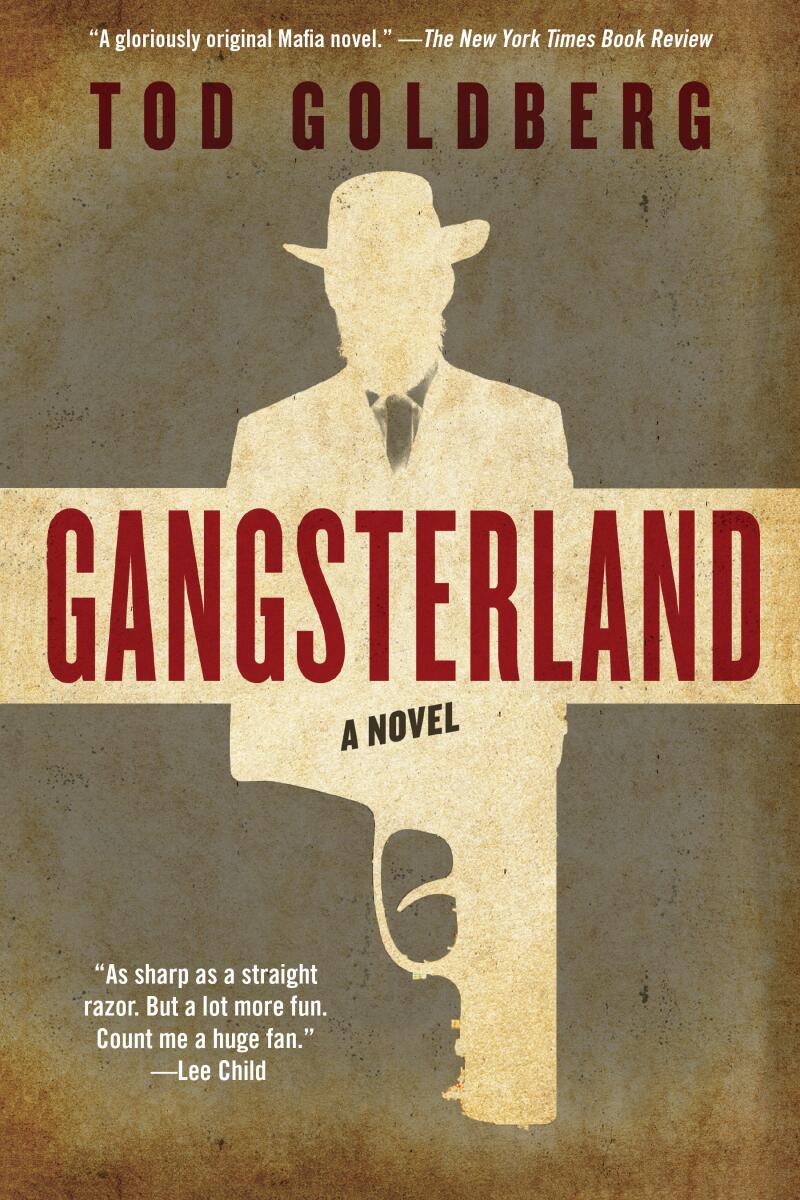
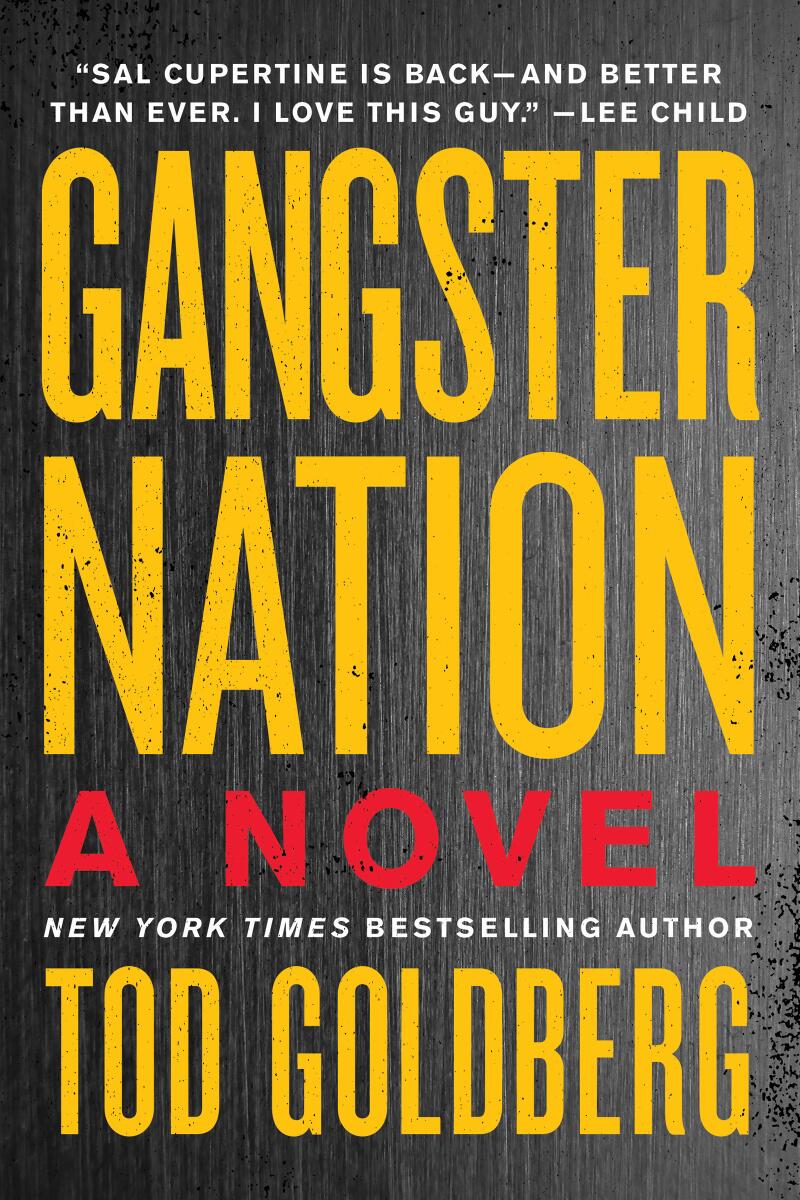
1. “Gangsterland” and “Gangster Nation” kicked off the desert noir series by Tod Goldberg that concludes with “Gangster’s Don’t Die.” (Counterpoint)
Perhaps this explains Goldberg’s willingness to make enemies online by calling out bad behavior on social media platforms, especially when it’s from people in power. Like when he challenged Indio City Councilman and former Mayor Mike Wilson over allegedly offensive comments. During the next election cycle, Wilson was voted out of office.
“Well, that’s a perfect example of trolling going well,” Goldberg said.
Although Sal accepts that his life is an irredeemable mess, in his role as a rabbi he embraces the opportunities to be of service to his congregation. Does Goldberg, who teaches at UC Riverside, where he founded and directs the Palm Desert Low-Residency MFA writing program, feel the same way about his role?
“Absolutely,” he said. “Every single person that comes through the MFA program arrives with a dream unfulfilled, and it’s my job to try to get them there. It is the most important thing in my life, other than my wife and my art. It’s a holy thing.”
Bouchercon, like many conferences that bring together creators and fans, has panel discussions, signings and an awards dinner.
As Bouchercon was winding down, L.A. crime writer Ivy Pochoda, who is also an instructor at Palm Desert (full disclosure: I was a visiting lecturer in June), raved about Goldberg’s commitment to his students and peers.
“Tod is easily one of the funniest people I have ever met,” Pochoda said, “but what his pervasive humor can sometimes distract from is his deep engagement with literature in all forms and his devotion and compassion for his students. This man goes above and beyond for his students and friends.”
And what about the rabbi? After three novels and several stories, is this really the last we’ll see of him?
The conclusion of “Gangsters Don’t Die” dangles enough loose ends to leave the door open for a follow-up. Moreover, the Gangsterland series would make for an outstanding television series. But after more than 15 years, Goldberg says he is ready to move on. “I feel like his story is complete, and while I miss his voice in my head, I’m also ready to figure out what the next thing is.”
In short, Goldberg has some free time ahead of him. The politicians of the Inland Empire have been duly warned.
Ruland’s latest novel, “Make It Stop,” was published in April.
More to Read
Sign up for our Book Club newsletter
Get the latest news, events and more from the Los Angeles Times Book Club, and help us get L.A. reading and talking.
You may occasionally receive promotional content from the Los Angeles Times.


